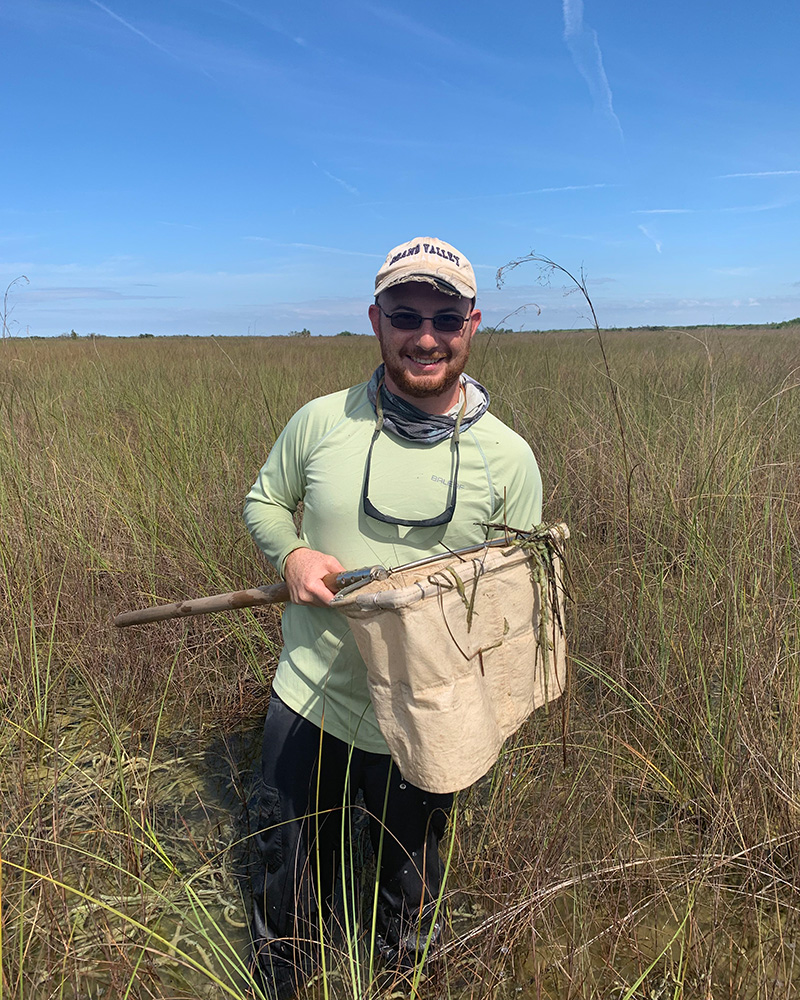By Christine Calvo, FIU News
Before they can fight to survive, some endangered songbirds are losing their groove and being robbed of their chance at love – all because of what’s in their food.
Residing exclusively in Everglades National Park and Big Cypress National Preserve, the Cape Sable seaside sparrow has been endangered for nearly 60 years. Today, less than 2,500 remain. FIU doctoral candidate Alan Mock and a team of researchers now have growing concerns about a hidden threat lurking in the bird’s food supply – mercury.
Their latest research, published in Ecotoxicology, suggests male sparrows that have higher rates of mercury have significantly lower chances of scoring a mate – a major problem for a bird already struggling to survive amid habitat loss and degradation. This is the first research published on mercury concentrations in the Cape Sable seaside sparrow, Mock said.

To measure mercury levels, the researchers collected feathers from adult and young sparrows during three breeding seasons between 2016 and 2018. They found local water conditions directly influenced mercury exposure in the secretive birds which measure no more than 5 inches when fully grown. The faster drying of marshes led to higher mercury levels which led to early breeding failure. Mock said fewer love connections could mean a devastating 60 percent drop in the population productivity.
Mercury is a chemical element that moves through ecosystems from air pollution and land runoff into water bodies. Once in the water, tiny microbes turn the substance into a more poisonous form called methylmercury. From there, it makes its way up the food chain into aquatic insects – a favorite meal for the sparrows.
“We can manage recession rate and water levels to try to reduce exposure, but that’s kind of putting Band-Aids on the overall mercury pollution problem,” Mock said. “Global efforts to reduce mercury emissions are the long-term solution.”
Within the Everglades, continued restoration aimed at improving water quality must be supported, as water management could be key to reducing mercury exposure and helping native species survive.
The study is a collaboration between FIU’s Institute of Environment, Conservation InSight, Florida State University, the University of Florida and Oregon State University.
This piece was originally published at https://news.fiu.edu/2025/not-in-the-mood-mercury-messes-with-songbirds-mating-game. Banner photo: A banded Cape Sable seaside sparrow at Everglades National Park (Lori Oberhofer/NPS, Public domain, via Wikimedia Commons).
Sign up for The Invading Sea newsletter by visiting here. To support The Invading Sea, click here to make a donation. If you are interested in submitting an opinion piece to The Invading Sea, email Editor Nathan Crabbe at nc*****@*au.edu.



